The Black Isle peninsula is one of our favourite areas in the Highlands. It has a peaceful, slow paced feel. The land is beautiful, being mostly farming and woodland.
The main part, which is nestled between the Cromarty Firth and the Moray Firth, is easily accessible by regular bus service from Inverness. See Stagecoach services 26, 26A. The narrow roads and limited parking make driving a challenge in the summer months, so it's an ideal place to visit by bus.
One option to experience the Black Isle is as a day trip, stopping at one or more of the places in this guide. We have also included accommodation options in case you decide to have a longer visit.
The places of most interest are the busy town of Fortrose including one of the best places in Britain for viewing dolphins, the attractive village of Rosemarkie with its long sandy beach, and the popular and idyllic historic town of Cromarty.
The Isle part of the name refers to the its water boundaries of the Cromarty Firth to the north, the Beauly Firth and Moray Firth to the south, and the River Conon and River Beauly to the west.
There are many and varied theories for the Black part of the name, relating to the colour of the land, the Gaelic language, and even claims of black magic being practised.
Note: the villages of Beauly, Muir of Ord and Conon Bridge are also on the Black Isle but not on this bus route. They feel different as they do not have a firth boundary and are to the west of the A9 road. They can be visited by train on the Far North Line and Kyle Line.
Fortrose is a busy small town on with an interesting cathedral, a handful of shops and small harbour. Most importantly, it is a short walk from one of the best places in Britain for viewing dolphins.
On the High Street there are also some very pretty Victorian houses - the ones with painted red woodwork and guttering always make us want to move house immediately!
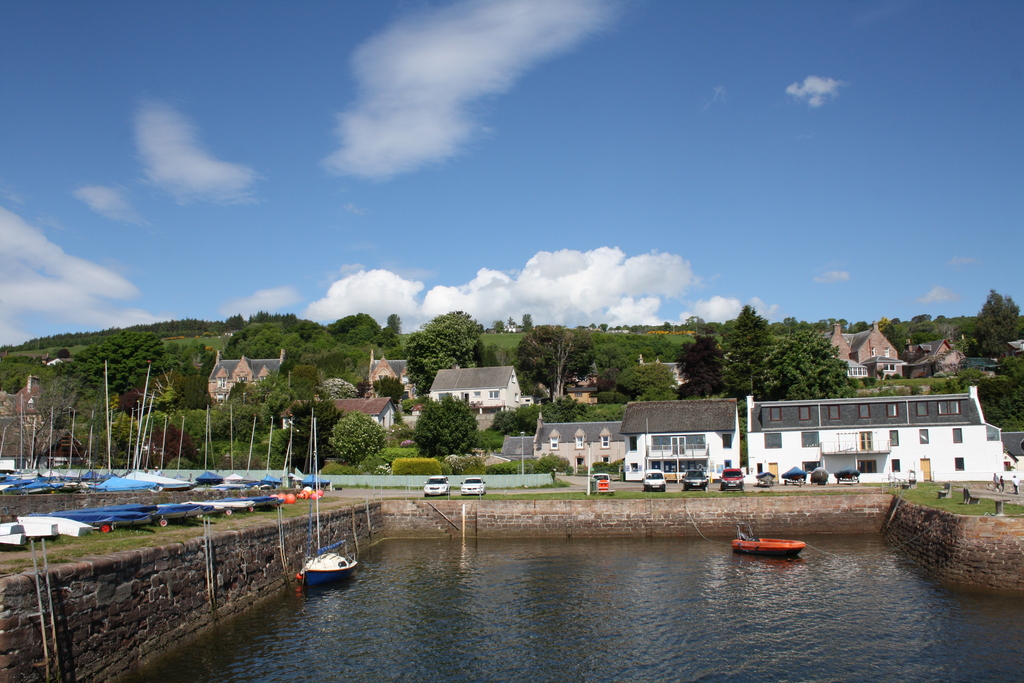
Fortrose Harbour
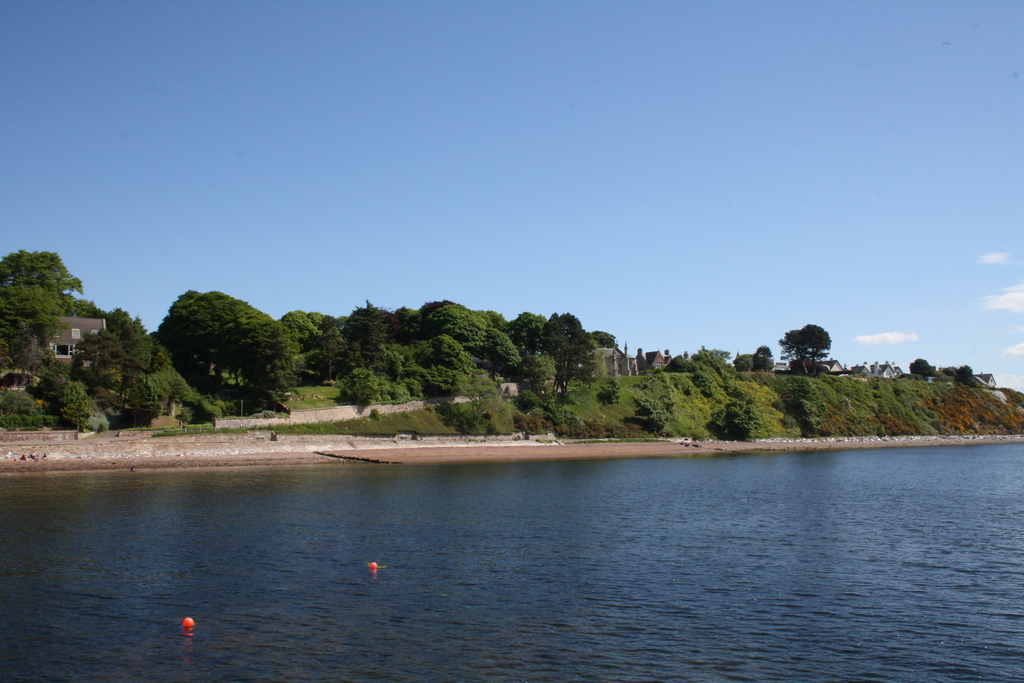
St Andrew's Walk Fortrose
This is an attractive ruined cathedral made of red sandstone. It dates from the 1300s and is set in pleasant grounds, with nice buildings in the surrounding streets. You can be pretty sure of some nice photos here.
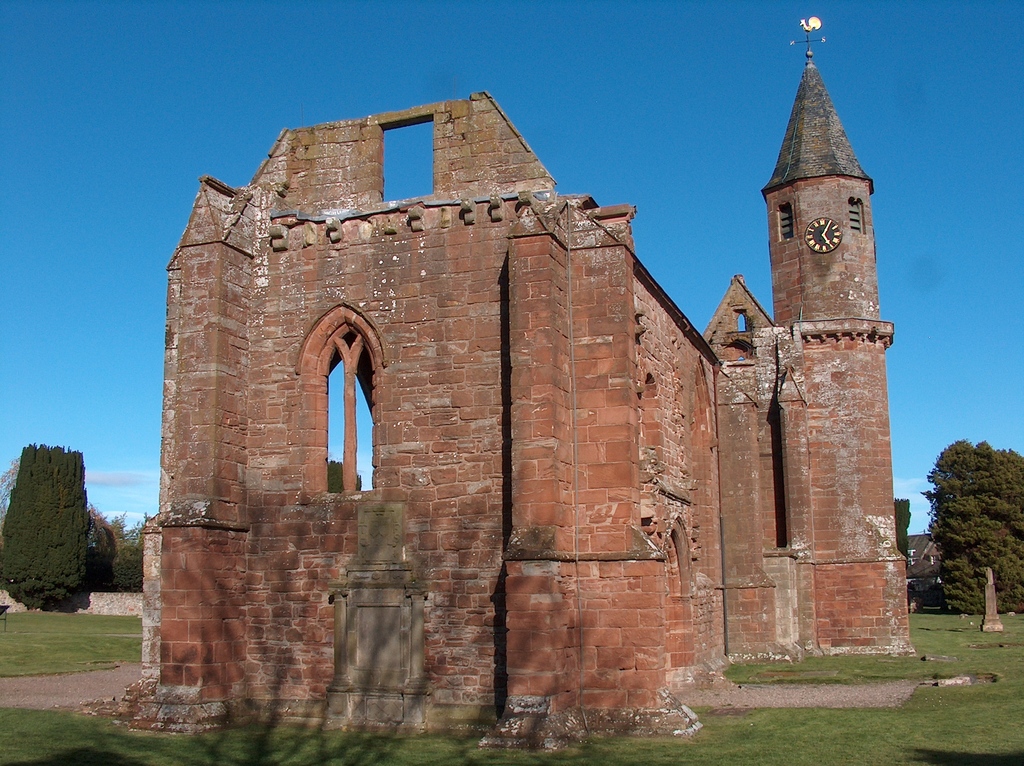
Fortrose Cathedral from the west end
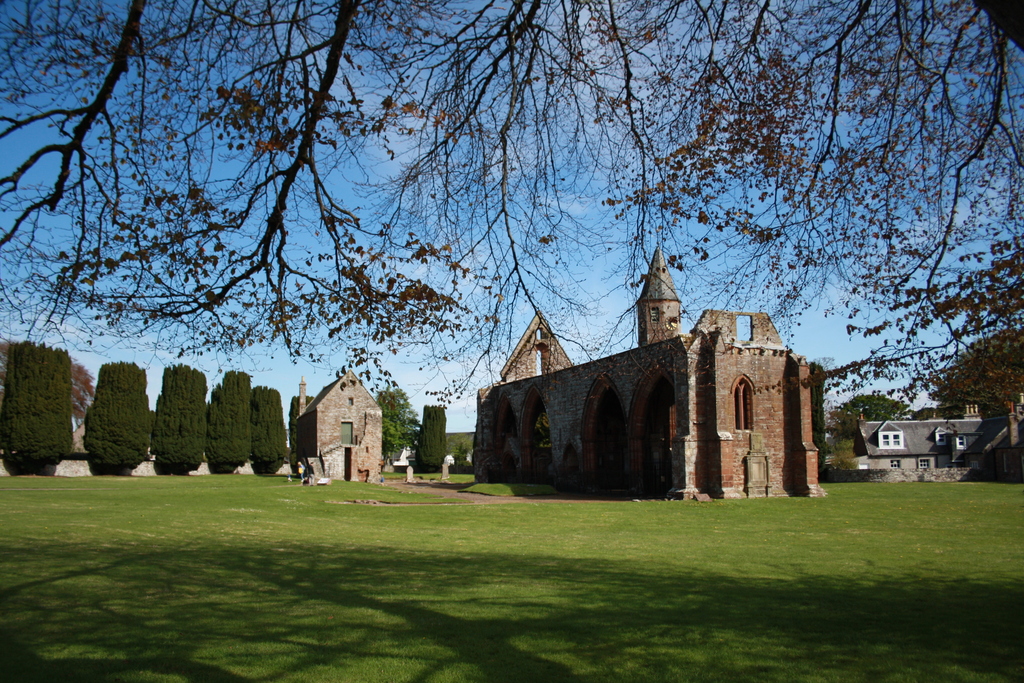
The grounds are nice to wander round
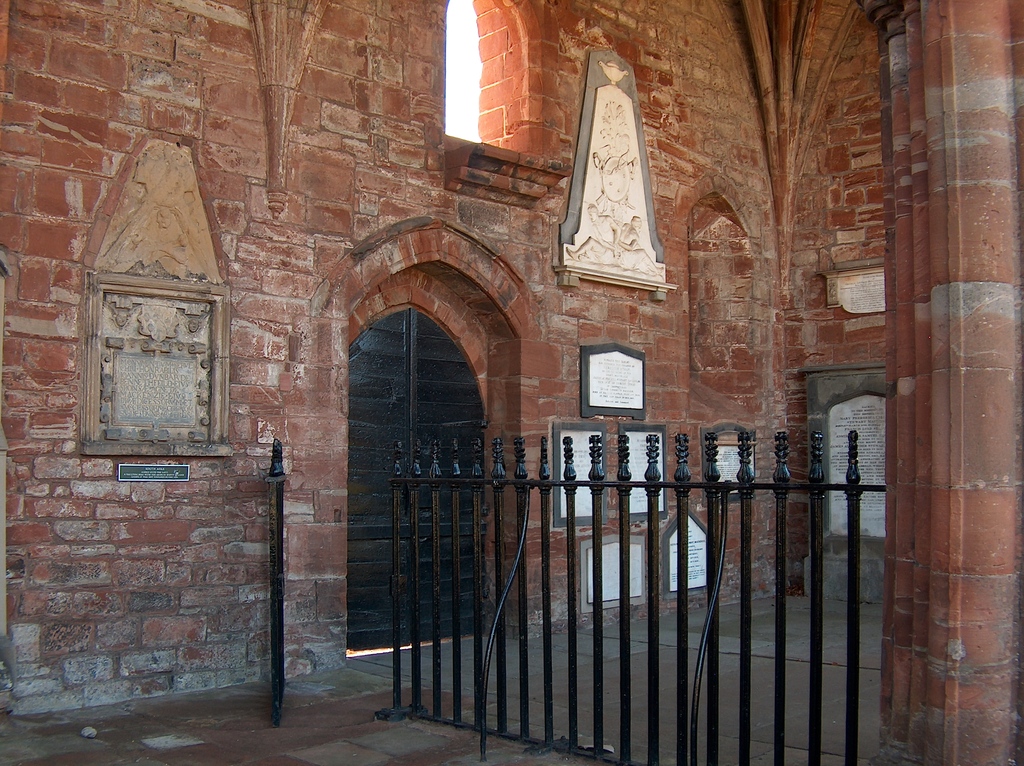
Cathedral interior
CHANONRY POINT
The point is around half an hour walk from Fortrose, either along the pleasant path along by the firth or through the golf course.
In this beautiful setting there is a lighthouse, beach and views across the Moray Firth to Fort George, which is a working and historic military fort.
You are likely to find it very busy as it is a popular spot for dolphin watching. They are most likely to appear in the hours after low tide - see Fortrose tide times. We have seen them performing amazing displays.
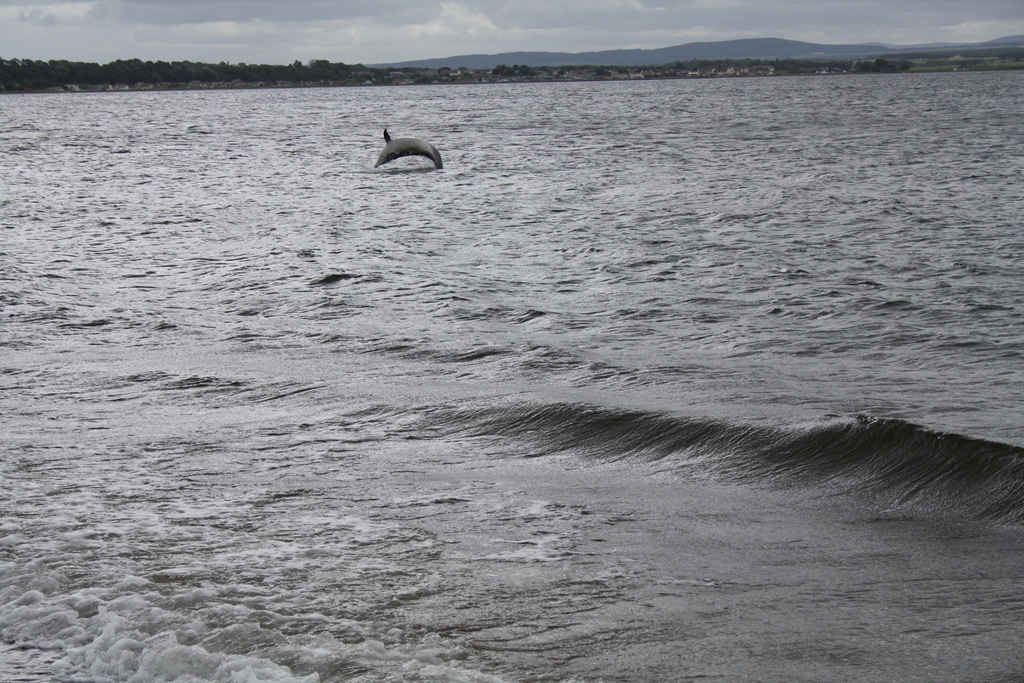
Leaping
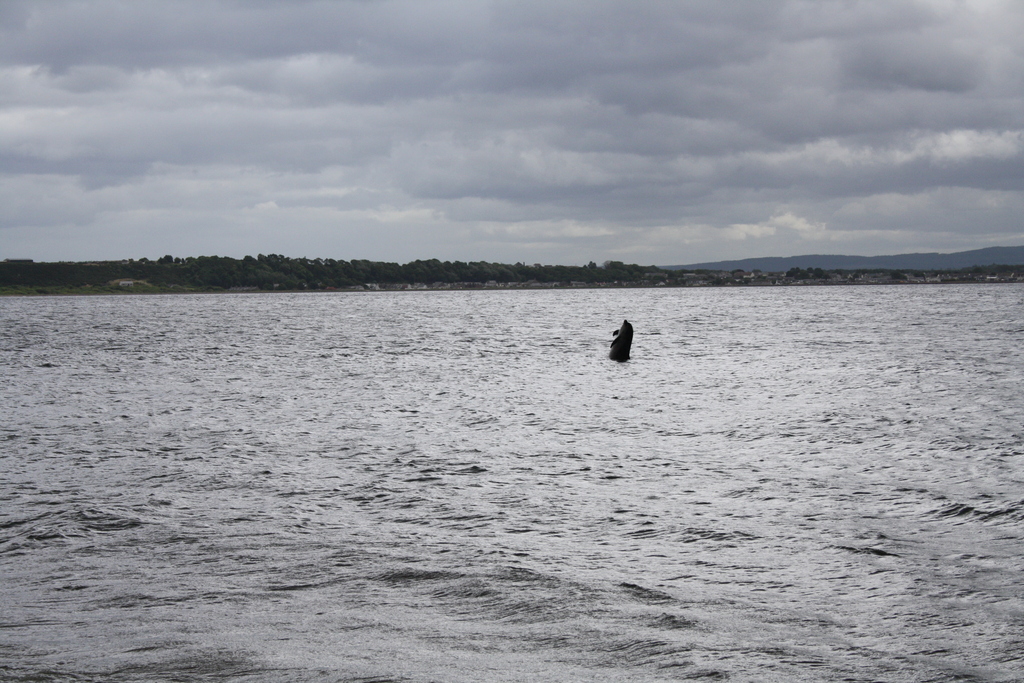
More leaping
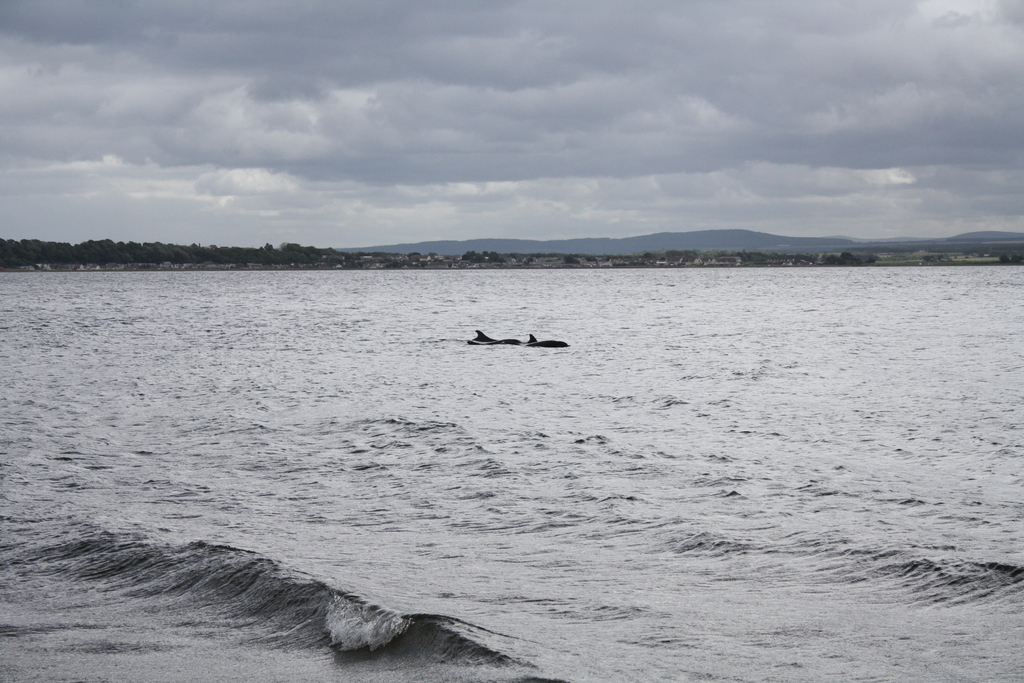
Synchronised swimming
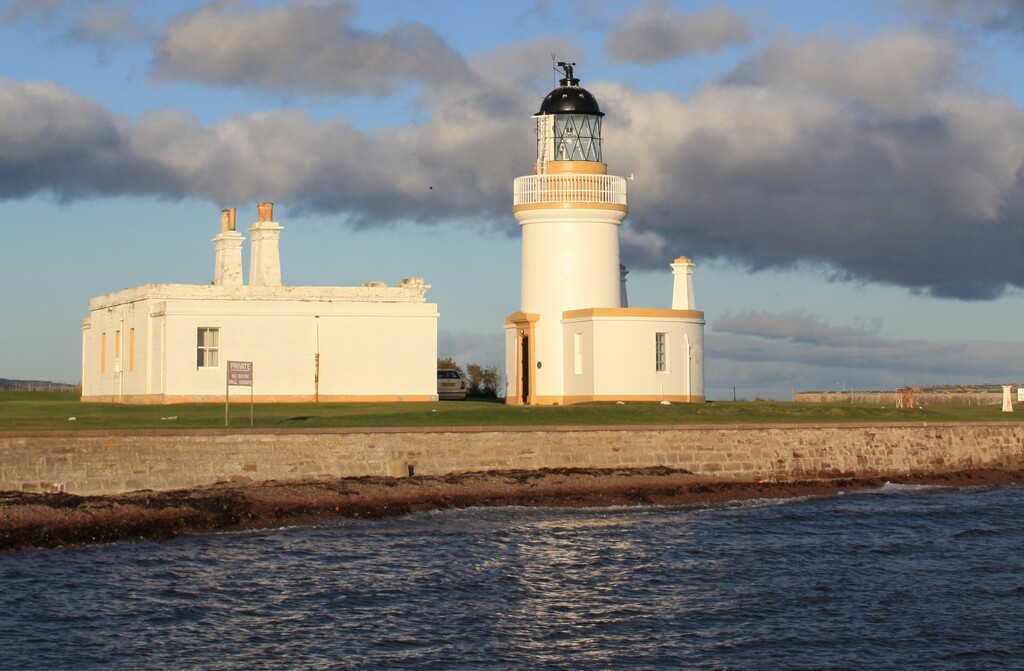
This is still a working lighthouse (automated in 1984)
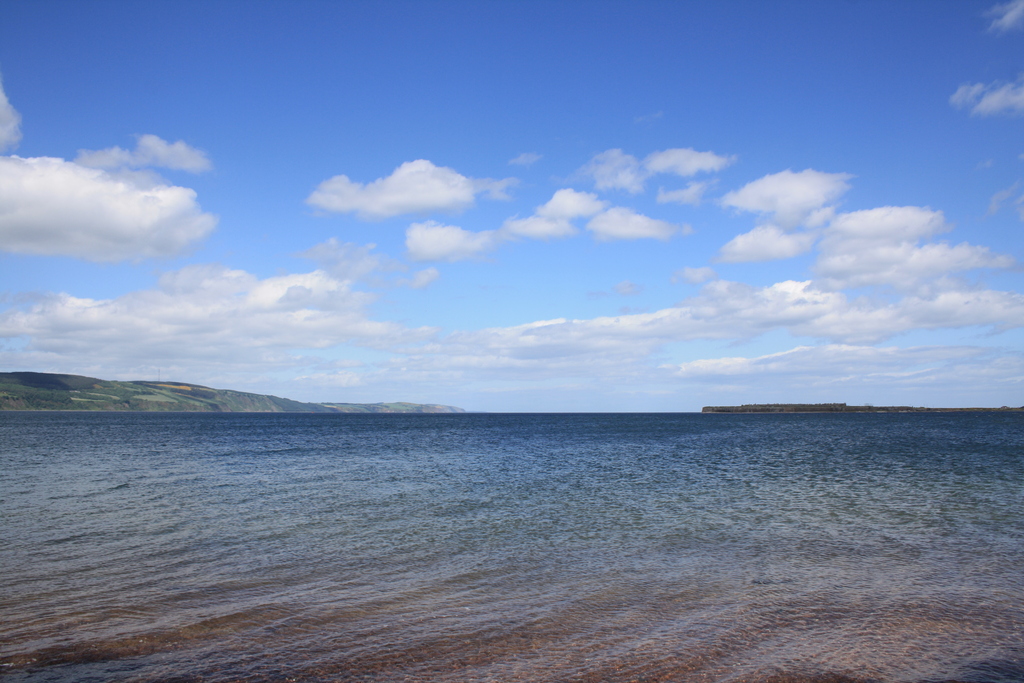
View across the Moray Firth with Fort George on the right
The Anderson (348 foot/0.1 km from stop 'Fortrose, Union Tavern')
Hotel, smokehouse, whisky bar and pub
Reviews: 4.7 on Google, 4.3 on TripAdvisor
Fortrose Bay Campsite (0.61 miles/0.98 km from stop 'Fortrose, Union Tavern')
Wonderful views over the Moray Firth. There is a Co-op in the village for supplies.
Reviews: 4.7 on Google, 4.7 on TripAdvisor
Reviews including accommodation: 4.7 on Google, 4.3 on TripAdvisor
Located at the Golf Club, about 20 minutes' walk from the village centre
Reviews: 4.5 on Google, 5.0 on TripAdvisor
Very popular cafe
Reviews: 4.8 on Google, 4.7 on TripAdvisor
Reviews: 4.2 on Google
Rosemarkie is technically a separate village from the larger Fortrose, although the two are getting closer as Rosemarkie expands.
It is a pleasant walk between them of about 30 minutes, either along the road by the water or the beach from Chanonry Point in Fortrose. Alternatively you can catch the bus between the two.
ROSEMARKIE BEACH
This long sandy beach is popular for paddling, swimming and walking. It is possible to walk all the way to Chanonry Point in Fortrose, which takes about 30 minutes. The views are wonderful across the bay.
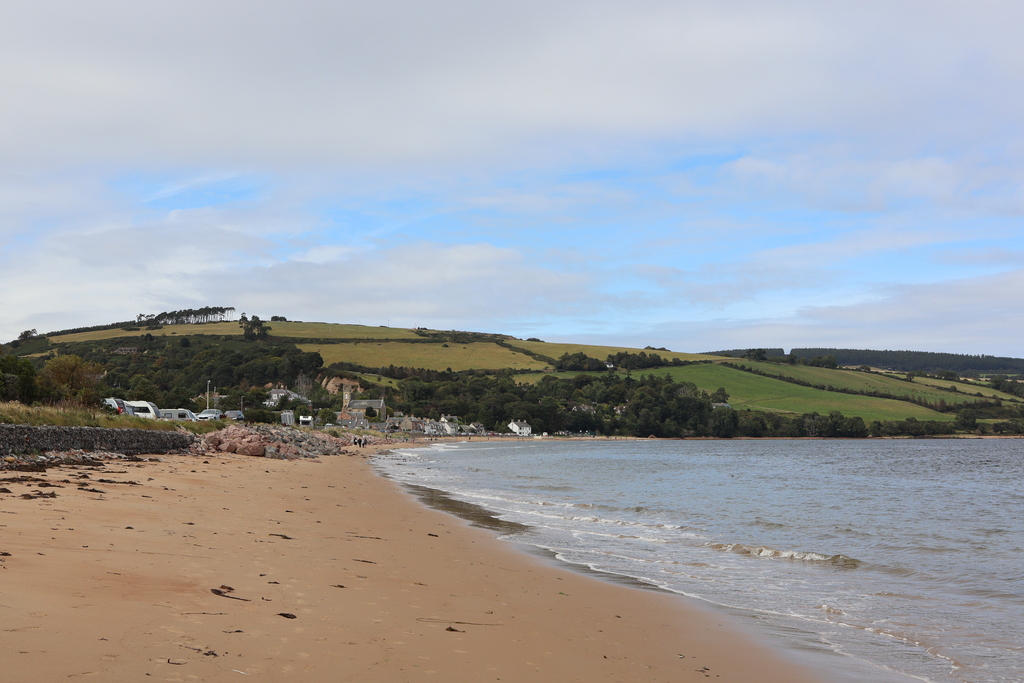
Looking back at Rosemarkie
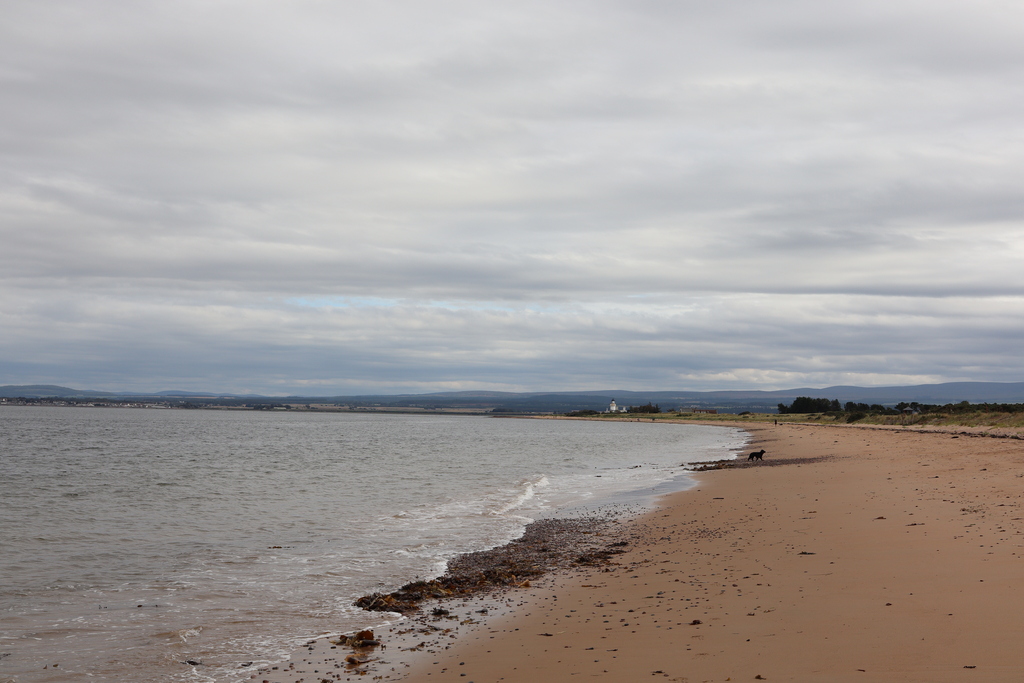
Looking towards Chanonry Point
This RSPB reserve is a tranquil, steep sided wooded glen with a footpath leading along the stream and up to two waterfalls.
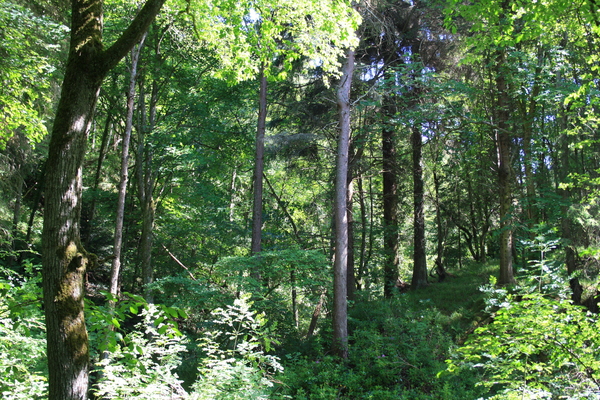
We have lots of pictures of the woods but none of the waterfalls
The museum's most important collection is its Pictish sculpted stones, connected with the village's early Christian monastery. It also has material about Black Isle history and celtic art.
Links with an * are affiliate links - this means that if you order through them, we may earn a small commission at no additional cost to you. These commissions help us continue the website, and we appreciate the support!
Tigh Na Mara Guest House* (0.16 miles/0.25 km from stop 'Rosemarkie, Spar Shop')
Reviews: 4.7 on Google, 4.7 on TripAdvisor
Popular cafe also open early evenings. We have enjoyed loaded fries here!
Reviews: 4.7 on Google, 4.4 on TripAdvisor
Charming 17th century drovers' inn
Reviews: 4.5 on Google, 3.9 on TripAdvisor
Reviews: 4.5 on Google, 4.3 on TripAdvisor
Cromarty is a popular and idyllic historic town at the end of the Black Isle, with views over to the industrial ports of Nigg and Invergordon.
There is lots to see and do, including many interesting old buildings, and you could easily spend the day or longer here.
CROMARTY BEACHES
There are two pleasant long sandy beaches, a charming small harbour and a lighthouse. You may also see people from the community rowing club out in their beautiful wooden boat.
The lighthouse was decommissioned in 2006 and is now a Field Station for the University of Aberdeen. The lighthouse lens is on display in the Cromarty Courthouse Museum (see below).
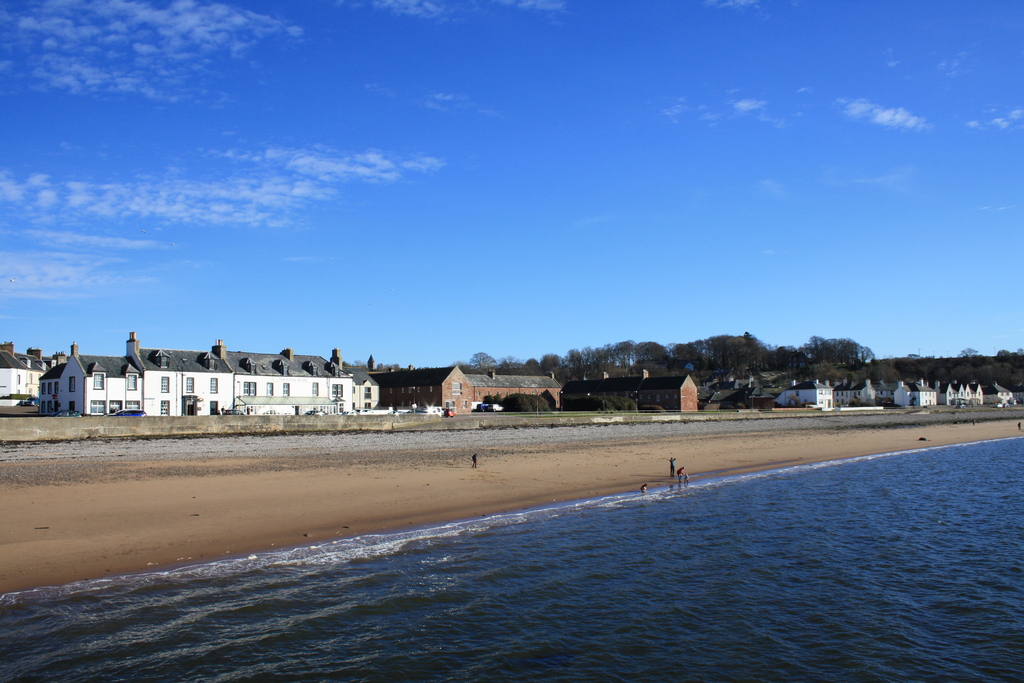
Marine Terrace and beach
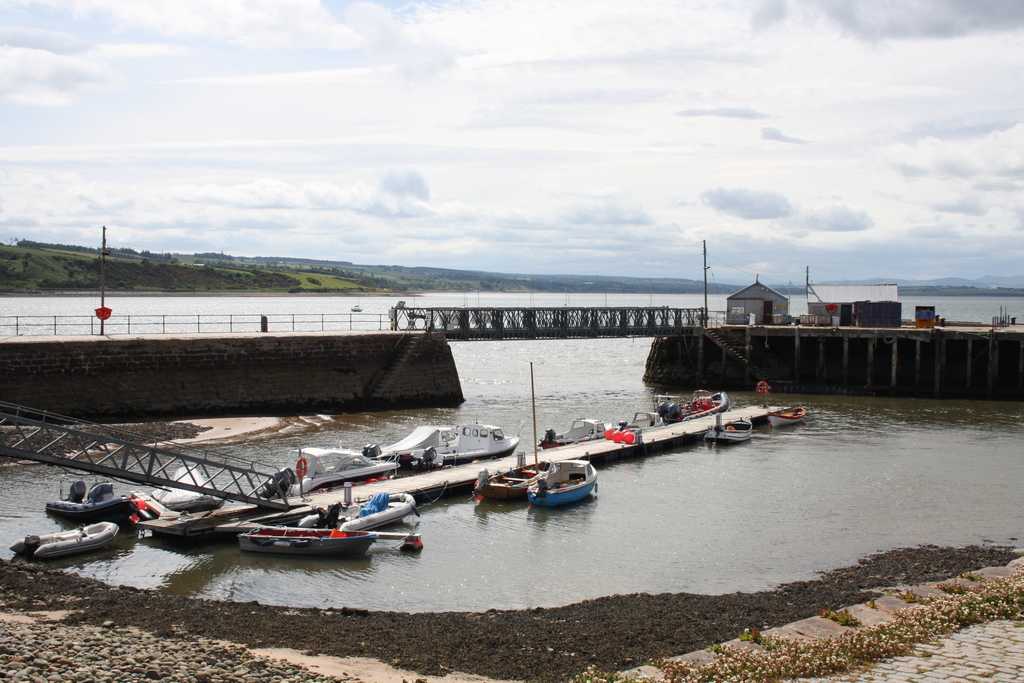
Cromarty Harbour
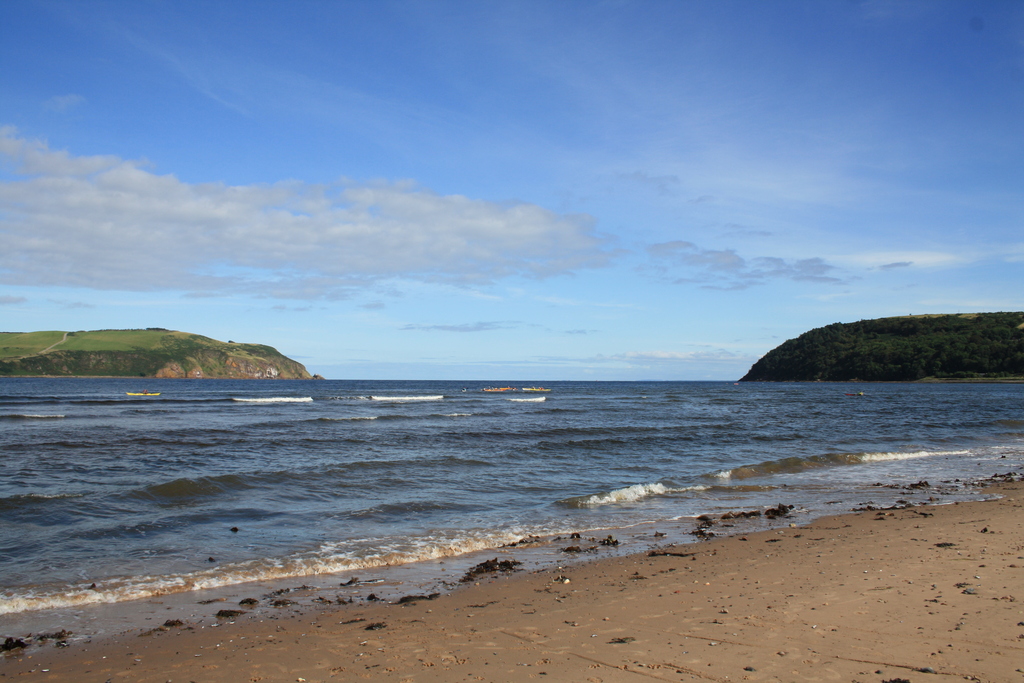
Cromarty Beach looking towards the Sutors
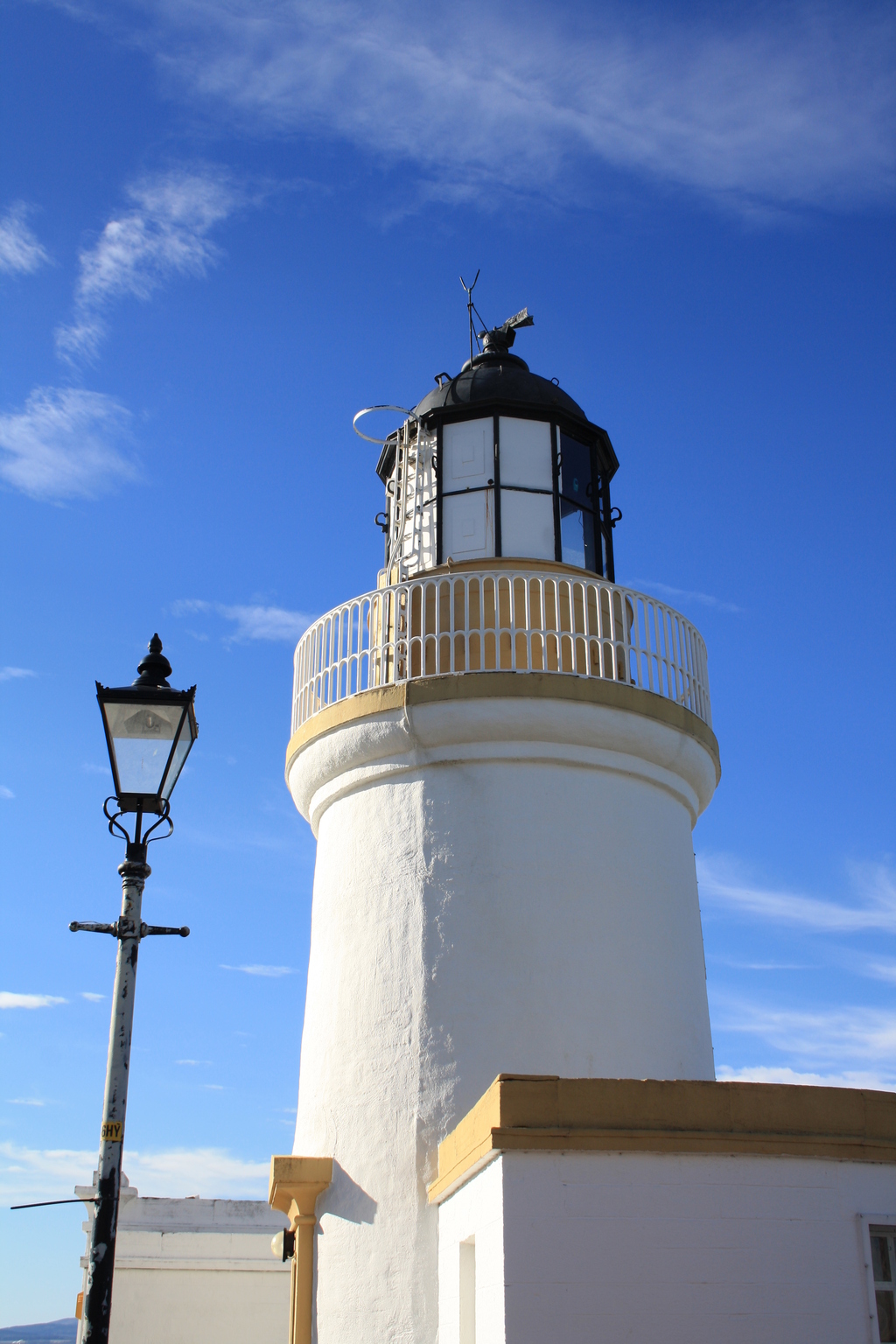
Cromarty Lighthouse
HUGH MILLER'S BIRTHPLACE COTTAGE AND MUSEUM
Hugh Miller was an influential local 19th century geologist and writer. You can visit the thatched cottage where he was born and the next door Georgian house which is now a museum. Outside there are also two pleasant gardens including a sundial carved by Millar.
It is run by the National Trust for Scotland, and has regular themed exhibitions and activities in the thatched cottage - we enjoyed visiting for Floral Fantasy when all the rooms were decorated with crafted flowers.
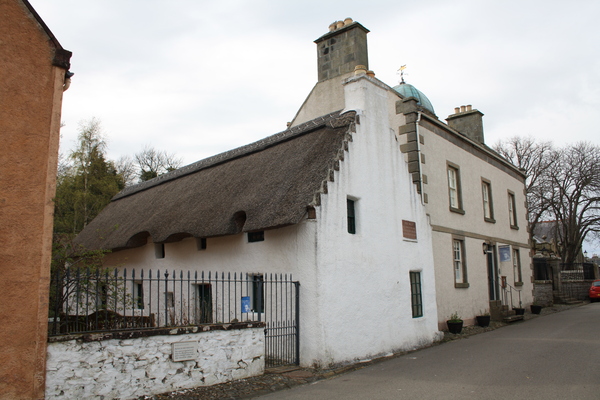
Hugh Miller's Cottage and Museum
Next door to Hugh Miller's museum house is the old Courthouse which is also a museum. As the name suggests, this grand building dating from 1773 was once the courthouse and jail.
Today you can find out about its history as a courthouse, including observing a mock case and exploring the cells. It also has exhibitions about the local area including its history as a seaport and home to a notable rope factory.
There is even a small cinema in a converted cell, showing a short film about life in Cromarty in the 1950s and 60s. It is an interesting place to spend an hour or two.
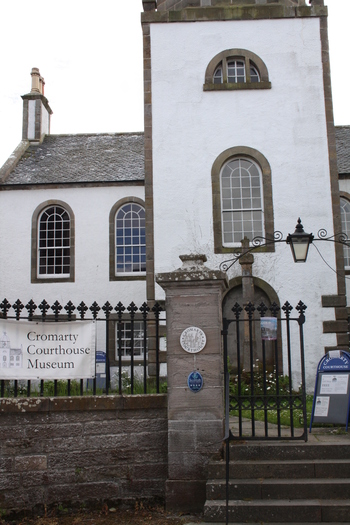
Cromarty Courthouse Museum
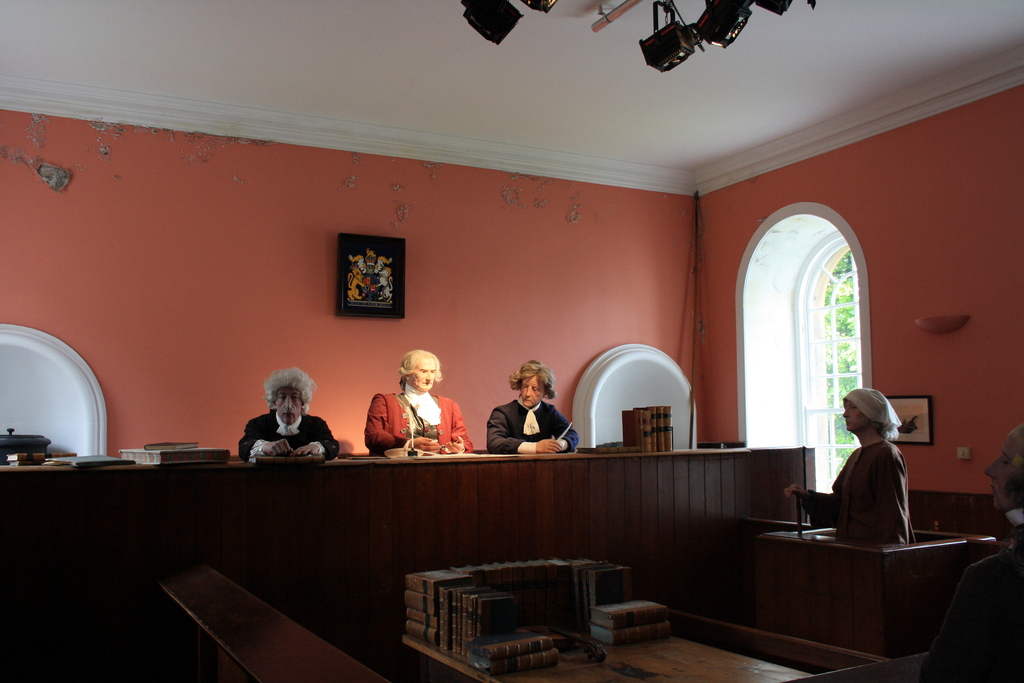
The mock trial is very well done
CHURCHES
Cromarty has four churches, only one of which is still in use and three of them you can visit.
East Church on Church Street is no longer in use but is open to visitors and has recently been refurbished. Along the road is St Regulus Church which is still in use and open for visitors.
Up the hill behind Church Street is the now roofless Gaelic Chapel which was in use for Gaelic services from 1783 to 1918, and for Roman Catholic Polish forces during World War II. It is possible to visit and see how it is gradually being taken over by nature.
Cromarty West Church closed in 2023 and is not possible to visit.
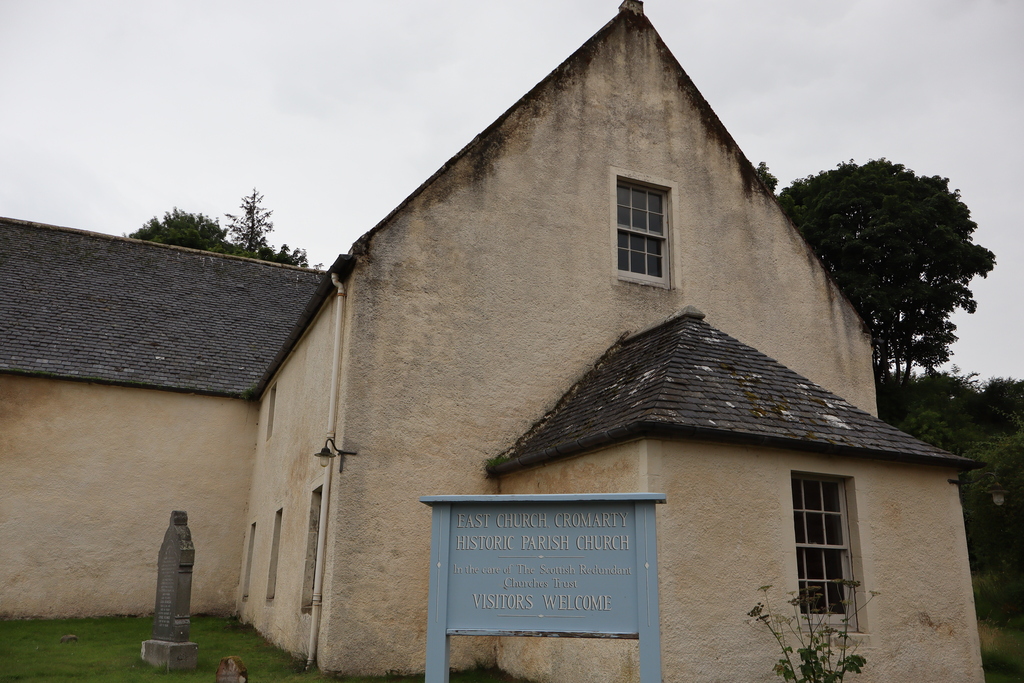
East Church
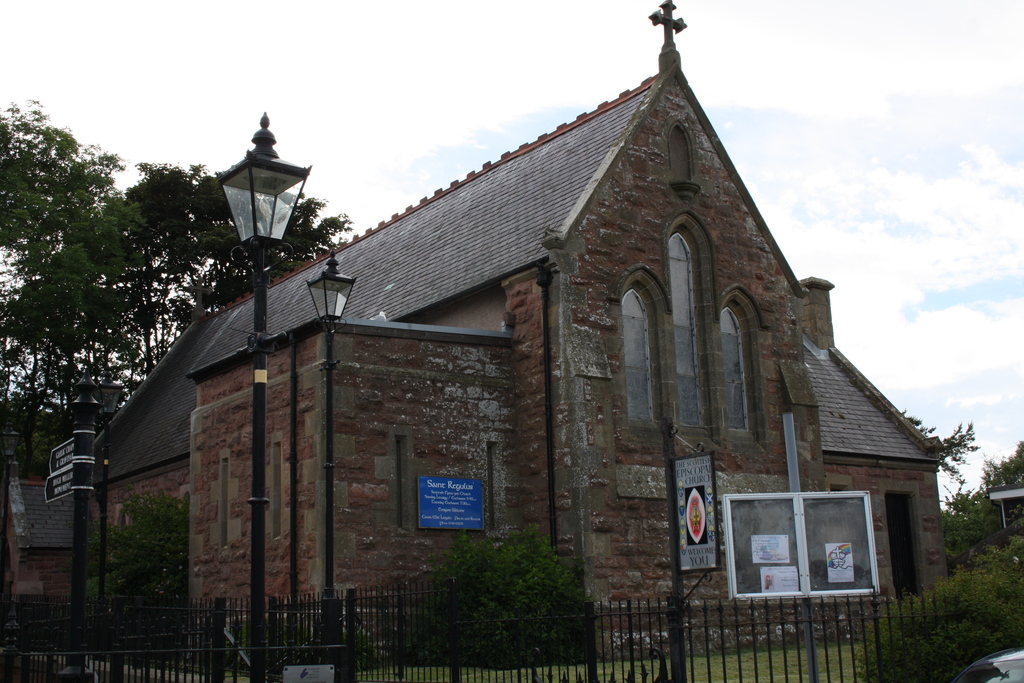
St Regulus Church
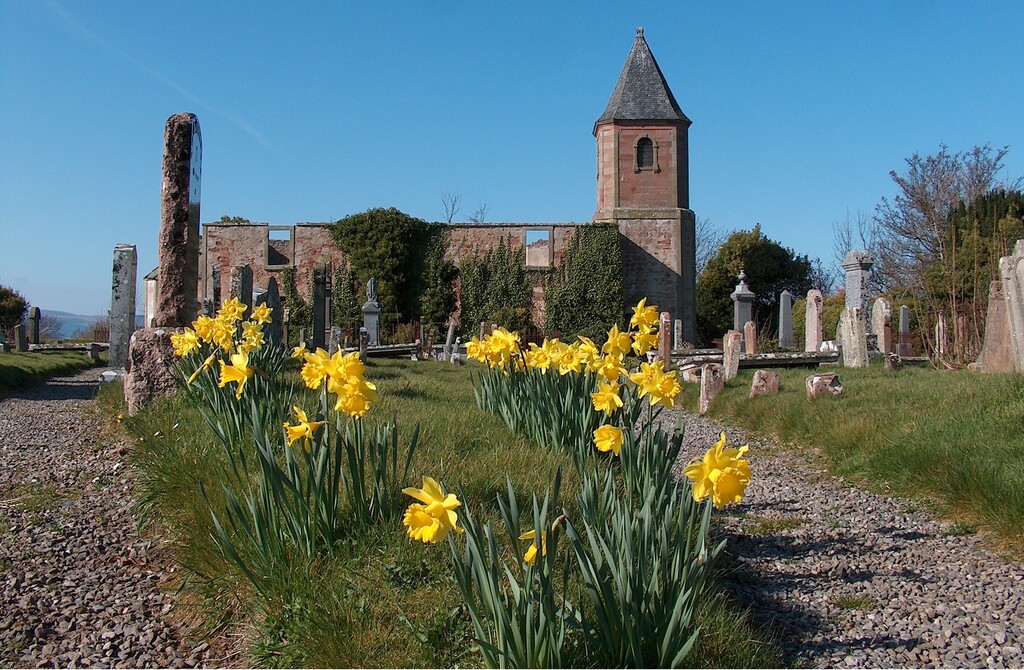
Gaelic Chapel
Offers two hour wildlife watching trips on a RIB out into the Moray Firth. If you're lucky you may see dolphins as well as other sealife and birdlife.
You will also have lovely scenery and good views of Cromarty as well as Nigg on the opposite shore.
Situated above the town is this hill with impressive views over to its neighbour North Sutor on the opposite shore, down over Cromarty and beyond to Invergordon in one direction and out to sea in the other direction. The circular walk is around 4 miles in total and is really pleasant.
You will pass coastal views, woods and fields, the attractive converted arts venue The Stables (spot the unicorn!), the historic St Regulus Burial Ground with a scary crypt, an interesting old servants' tunnel leading to Cromarty House (not open to visitors), and the bowling club.
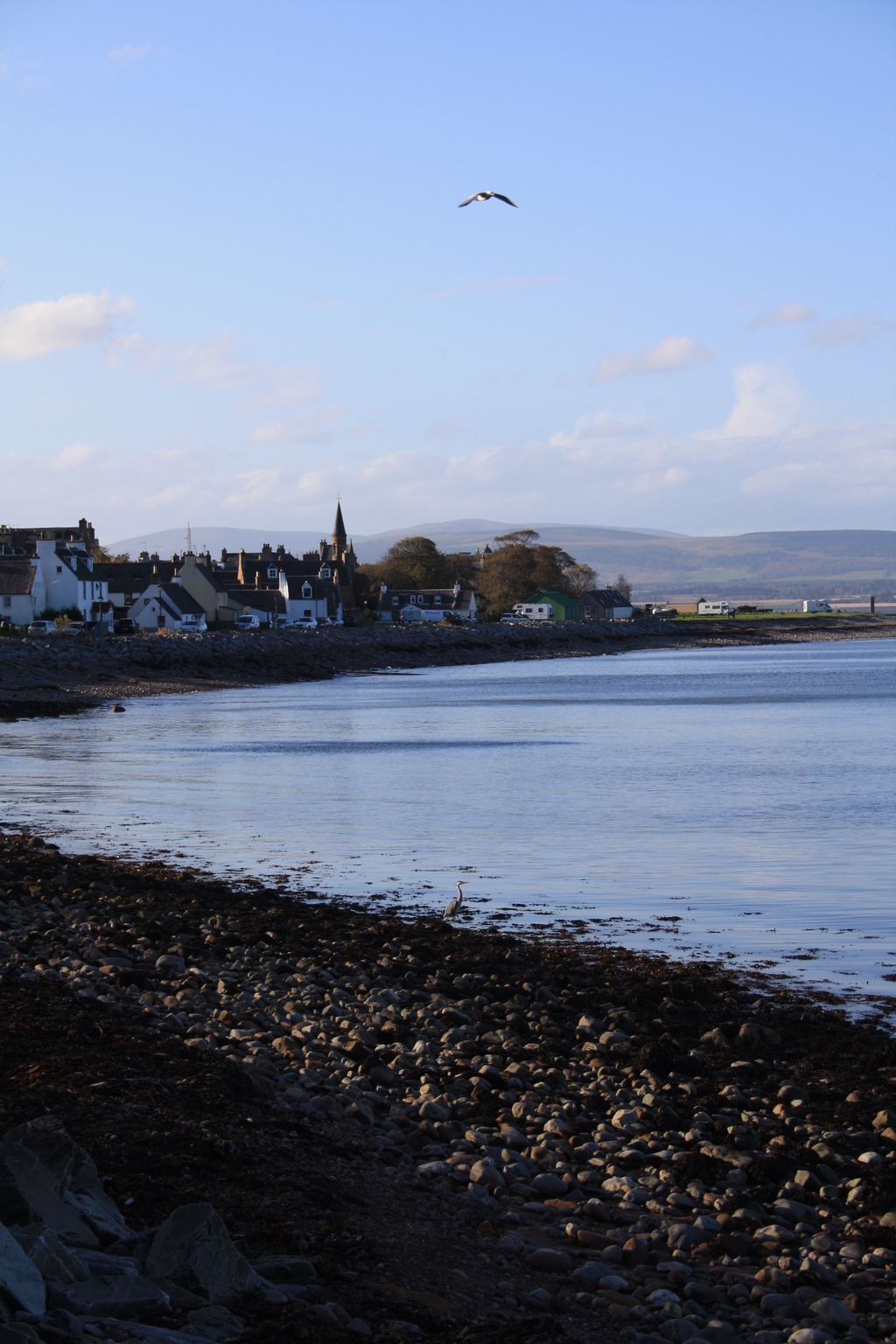
Spot the heron!
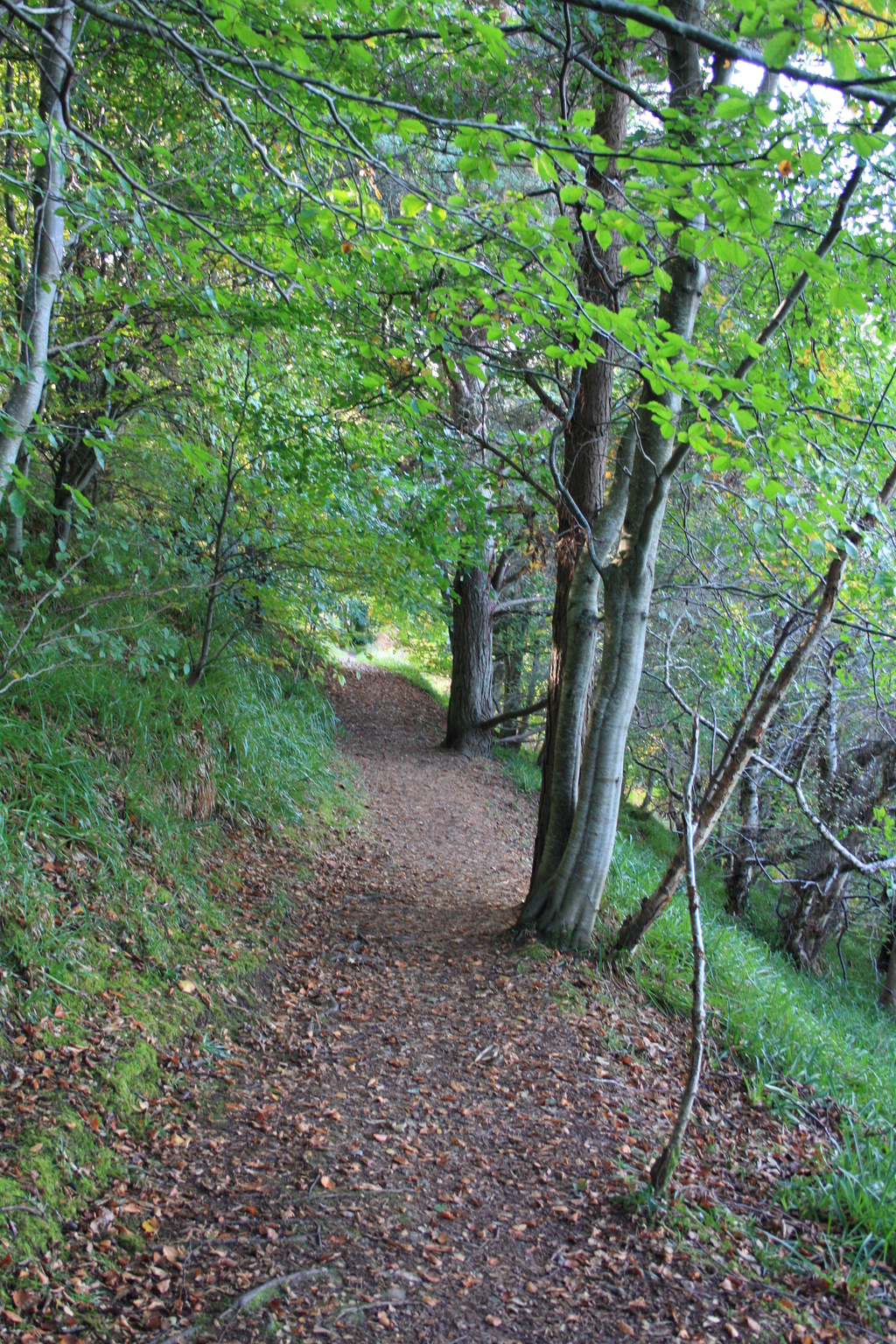
Path up the South Sutor
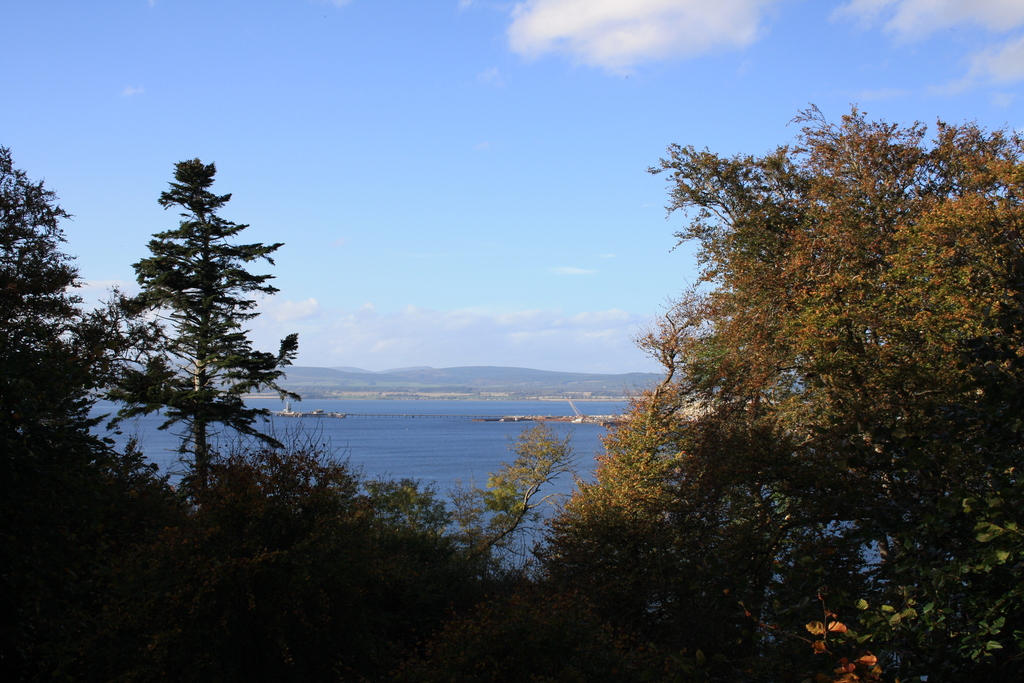
View of Nigg and towards Invergordon from the path
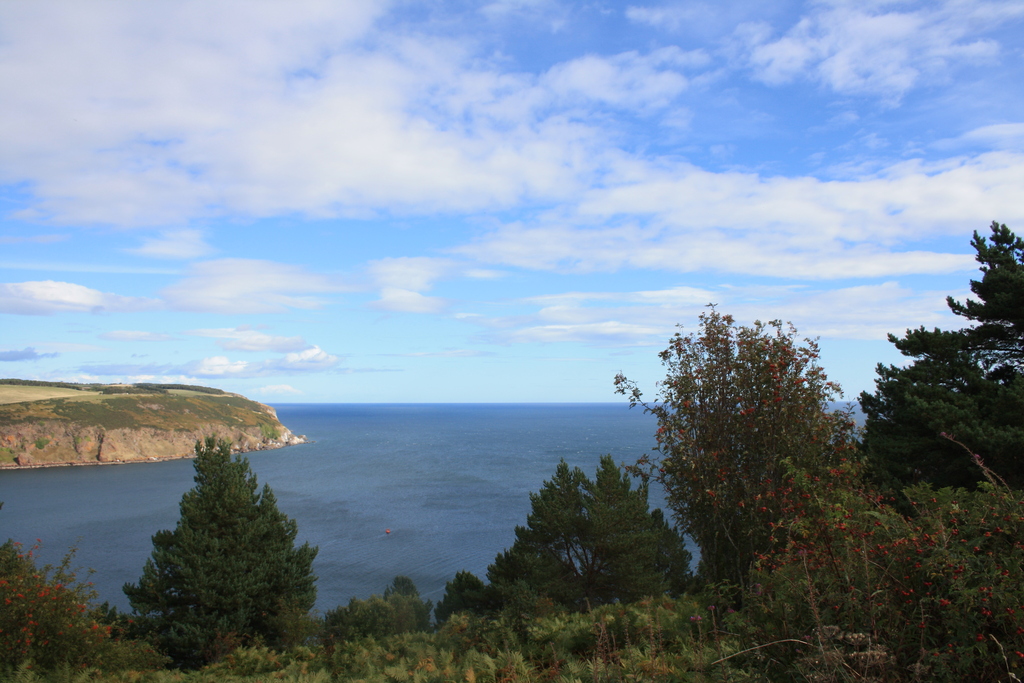
View from the top of North Sutor and out to sea
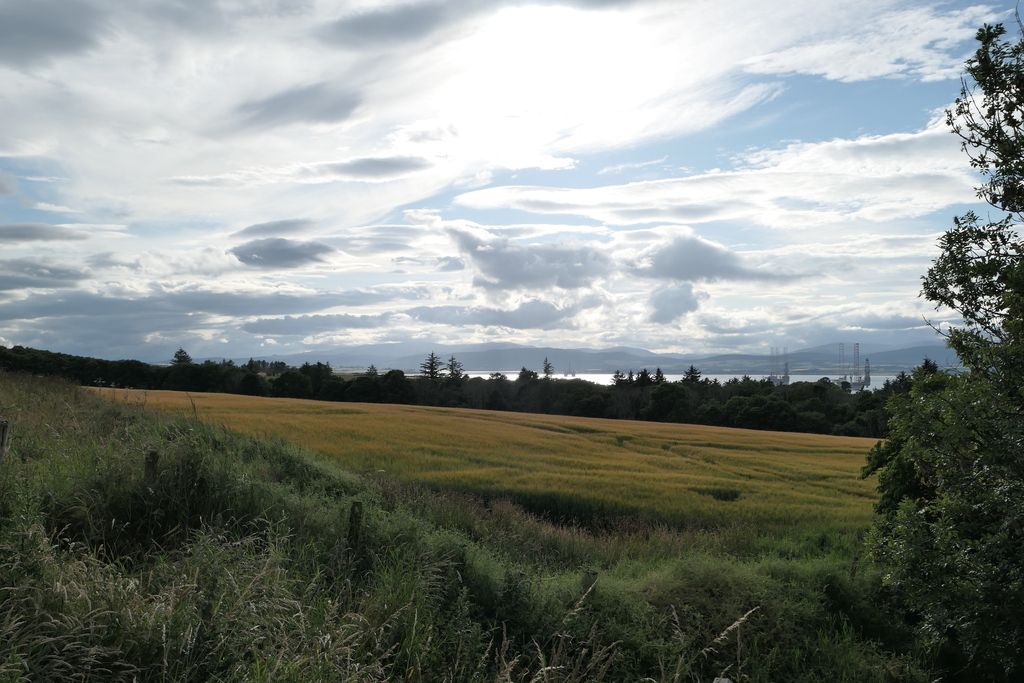
Fields and view across to Invergordon
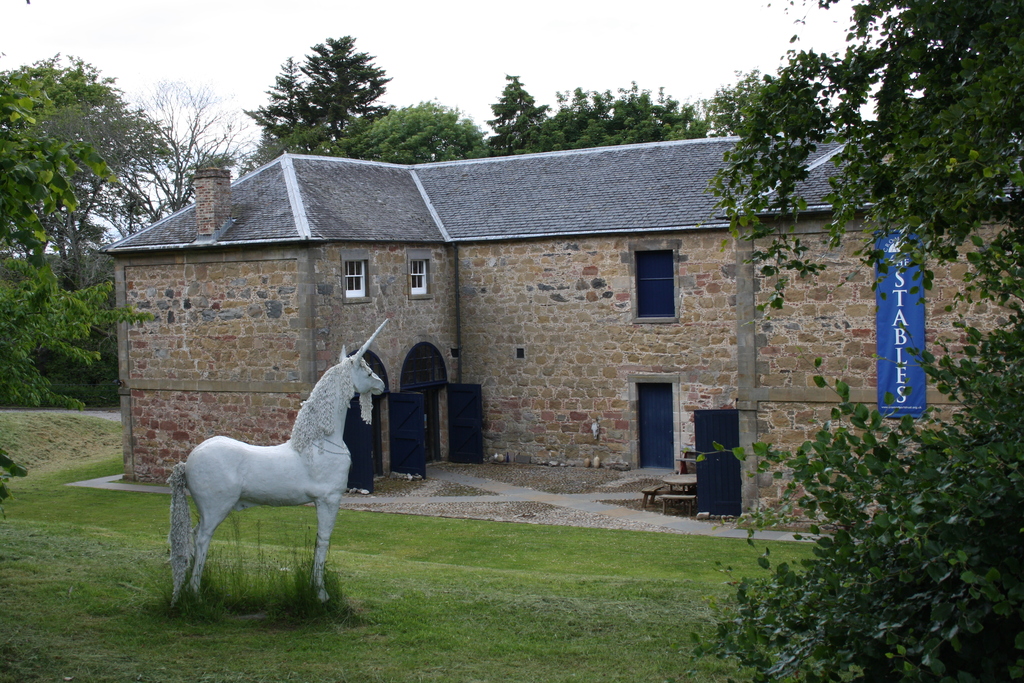
Looking for a stable?
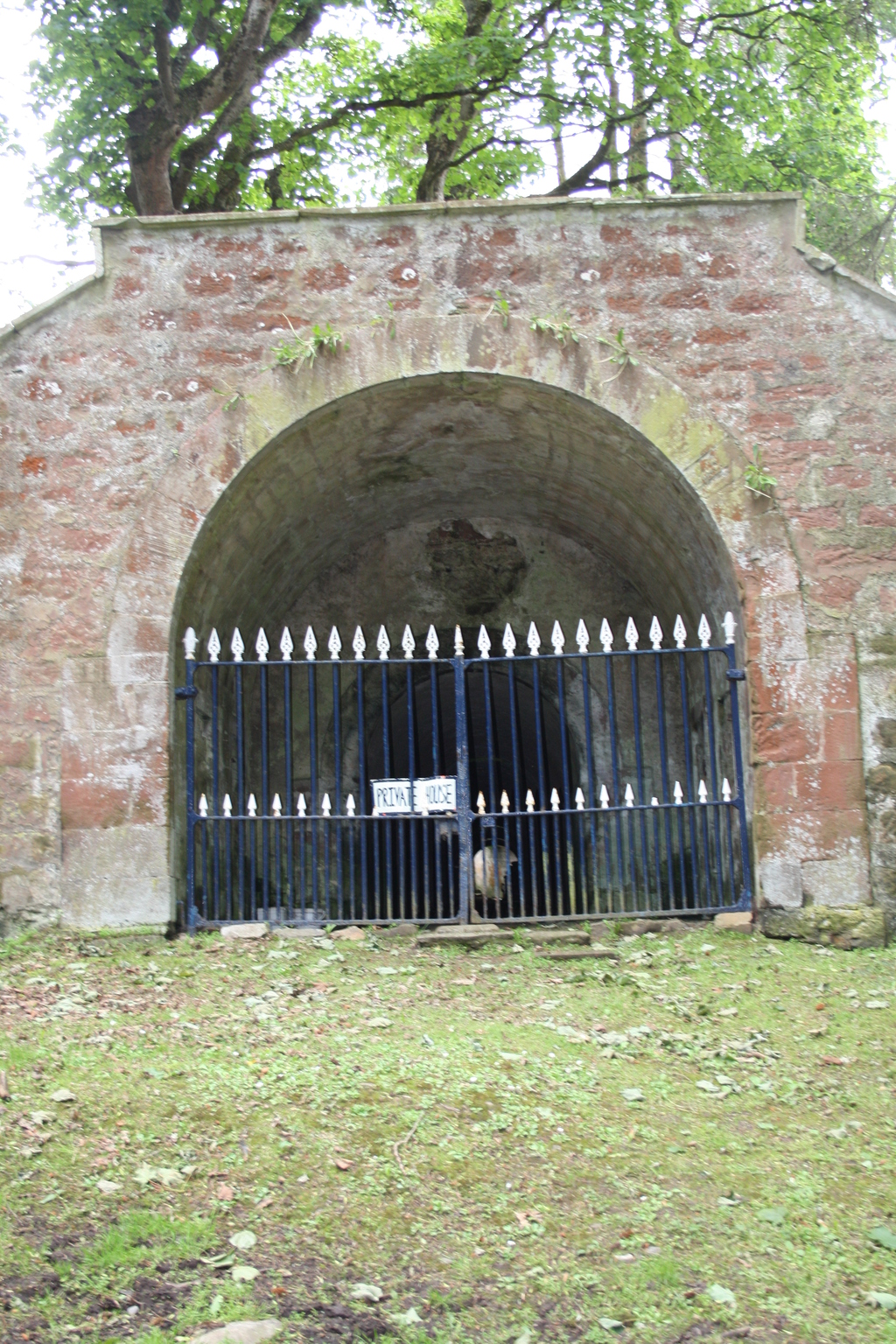
Servants' tunnel to Cromarty House
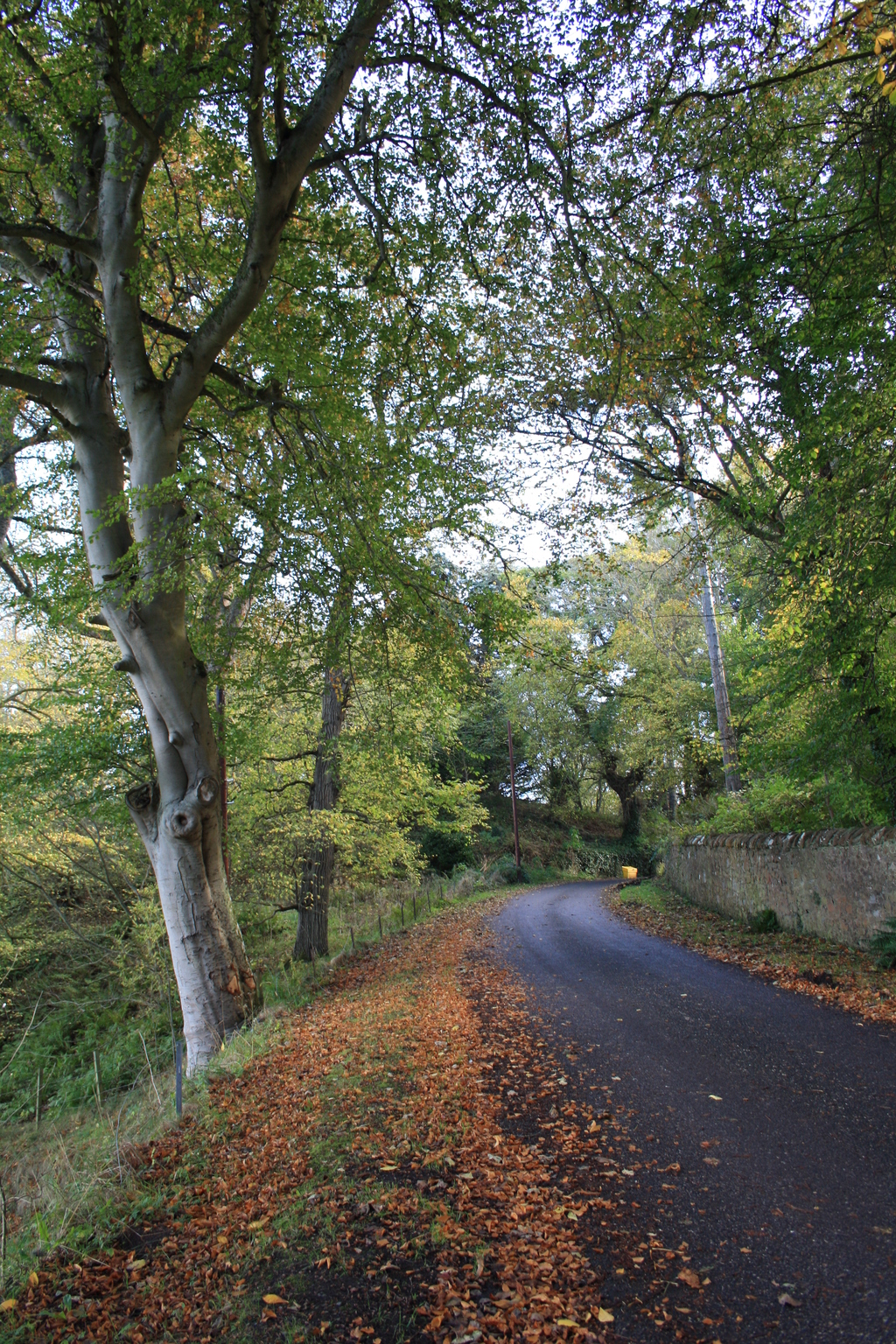
Road near the bowling club
The Trust has two venues in Cromarty, the Old Brewery which often has workshops, exhibitions and events on.
The Stables is a short walk up the hill towards the South Sutor and has a gallery, studios and open air events. Check out their website to see if there's anything on while you're in town.
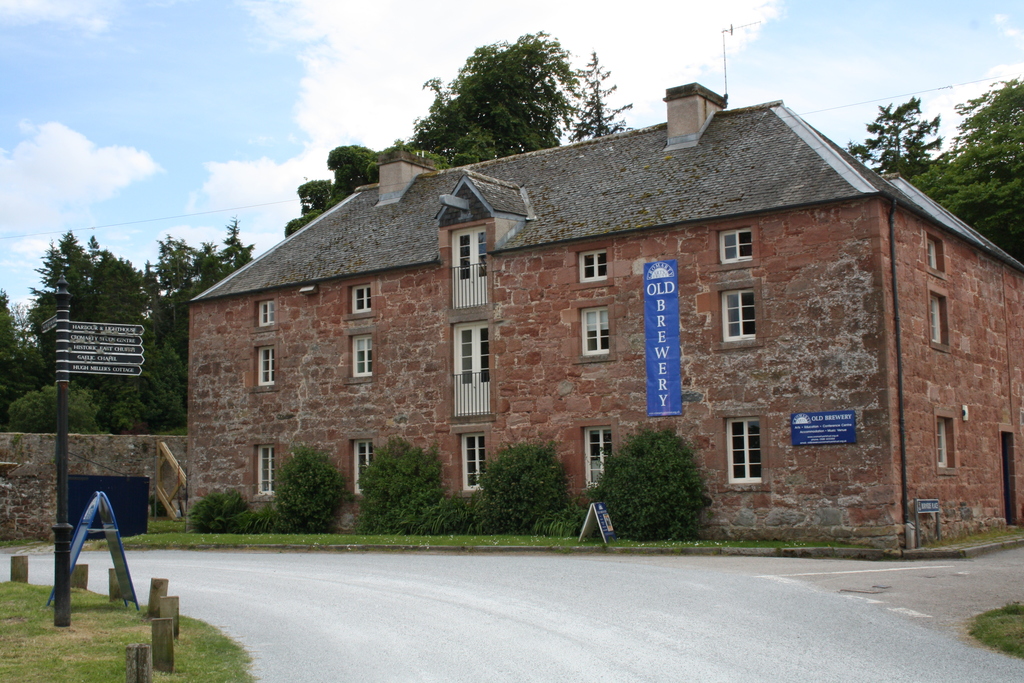
Old Brewery
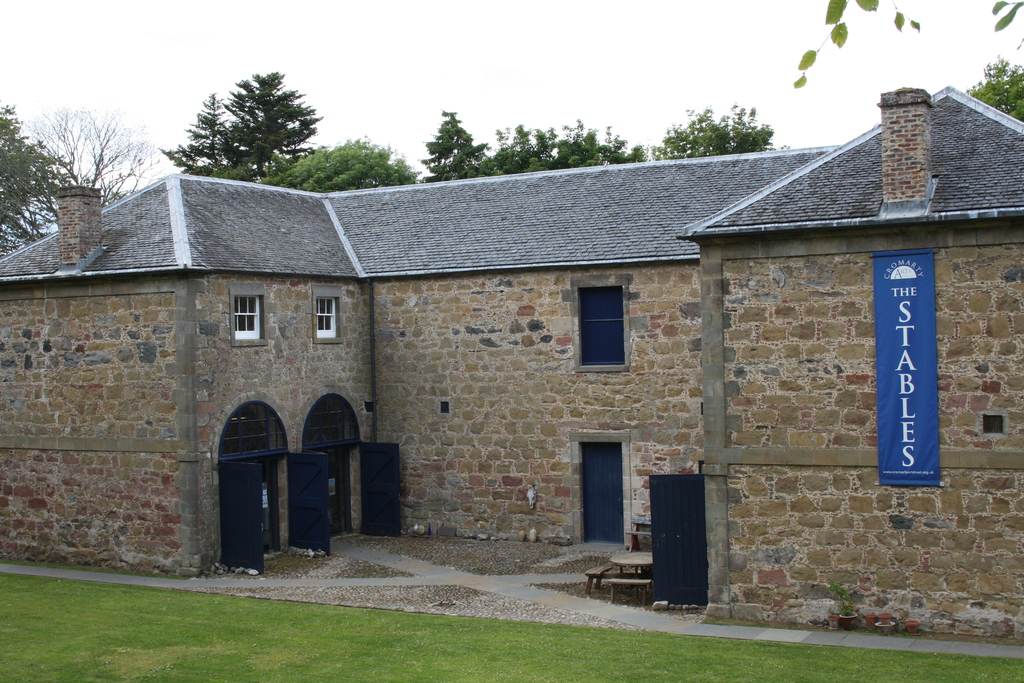
The Stables
This small 35 seater community cinema opened in 2020. It shows a mix of main releases, children's movies and independent films. It is very popular and often sells out so try to book in advance!
During the summer months it is possible to catch the small ferry across to Nigg. Keep an eye on their Facebook page for up-to-date sailing information.
Sometimes weather or tide conditions mean they stop running during the day, so take enough money for a taxi in case you get stranded, or you can walk the 7 miles to Fearn train station.
The Nigg area is dominated by industrial activity, however, there is a sandy beach and some nice walks.
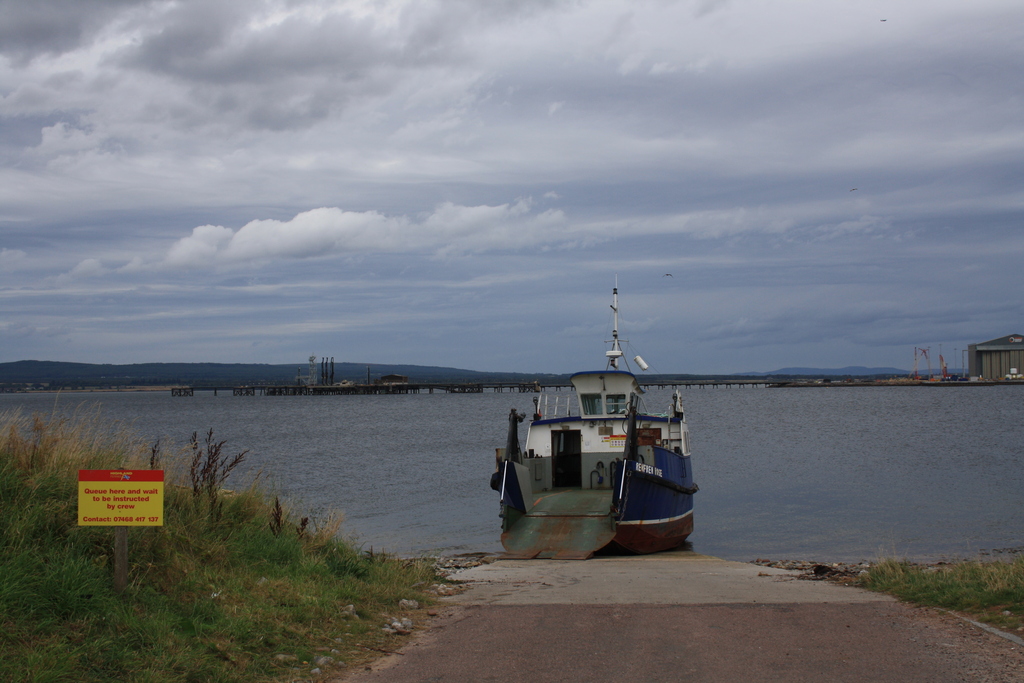
Renfrew Rose ferry at Cromarty slipway
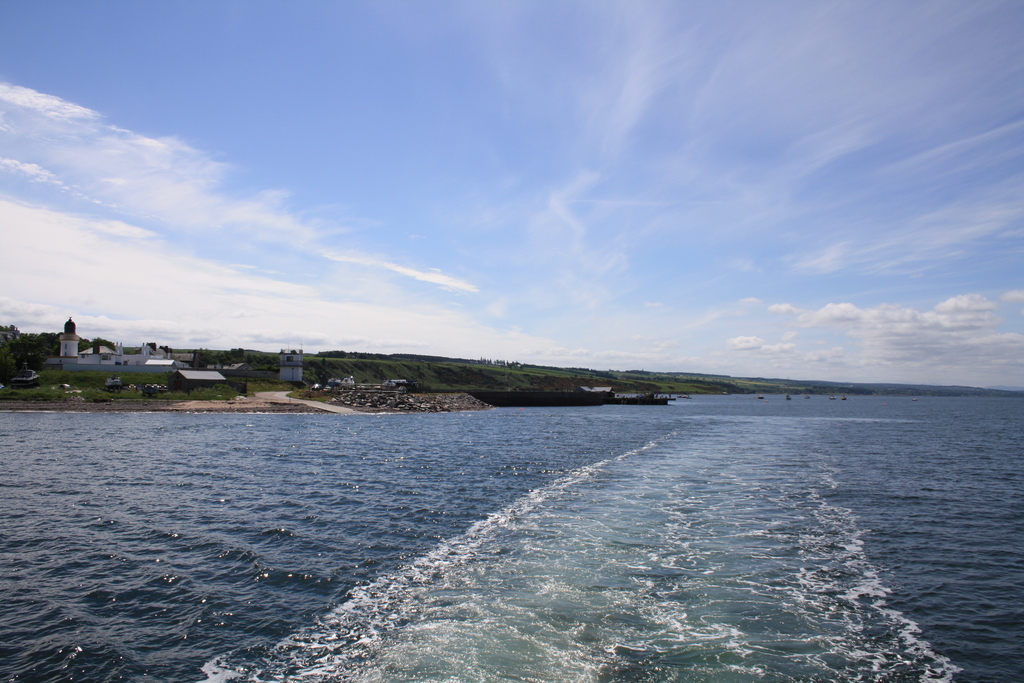
Looking back to Cromarty from the ferry
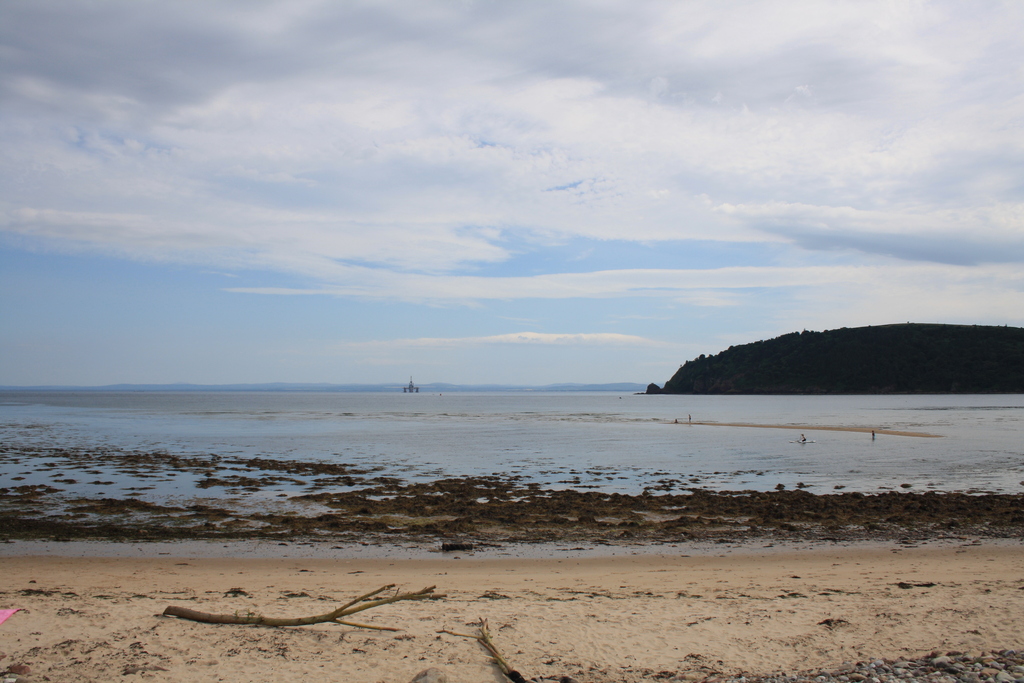
Nigg beach looking across to South Sutor
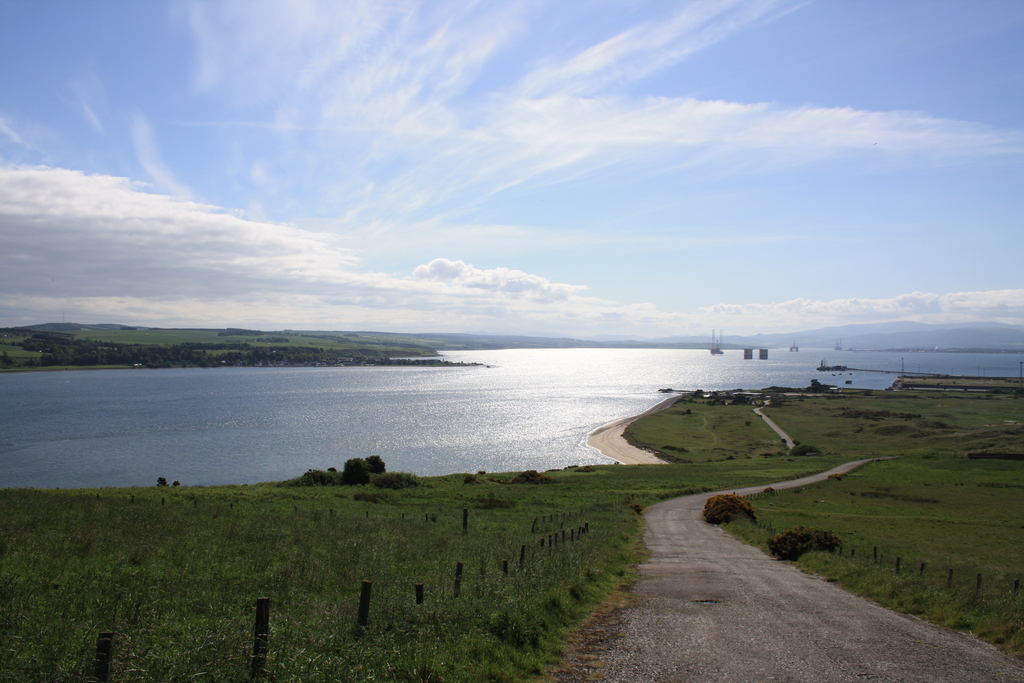
View from hill overlooking Nigg
Reviews including accommodation: 4.4 on Google, 4.2 on TripAdvisor
Reviews: 4.7 on Google, 4.6 on TripAdvisor
Popular seafood and pizza restaurant
Reviews: 4.7 on Google, 4.6 on TripAdvisor
Last Splash
Tiny takeaway cafe by the slipway, no website or Facebook page
Reviews: 4.8 on Google
Page last updated 12 October 2025